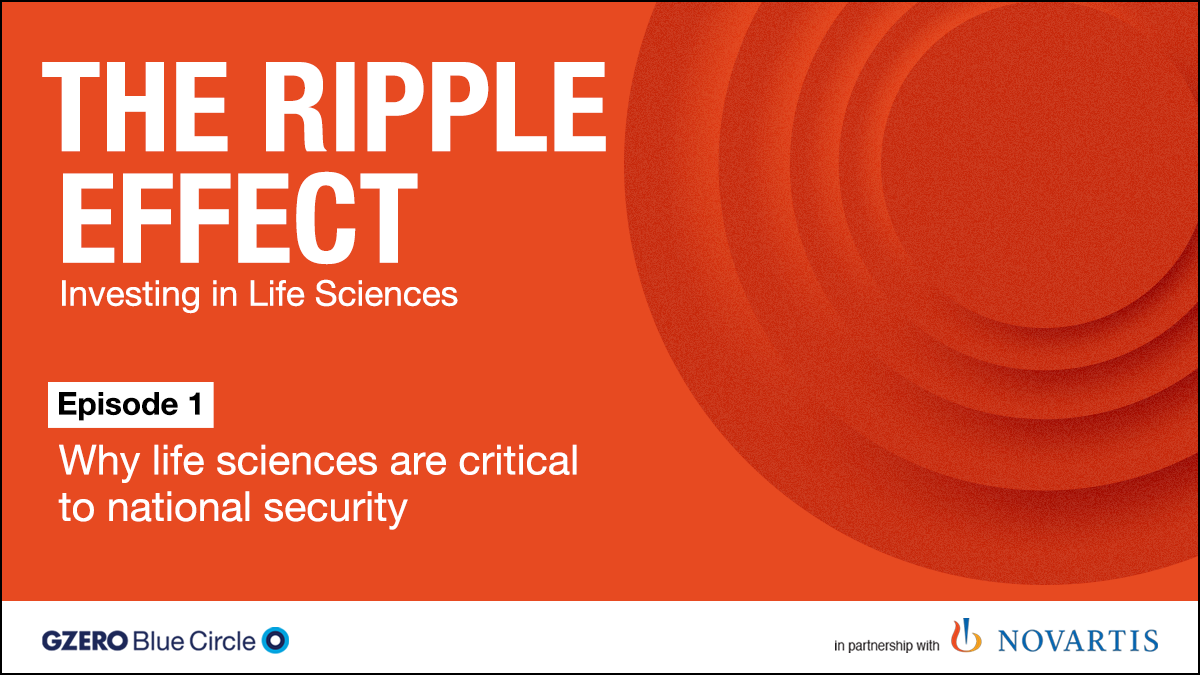June 30, 2025
Listen: What if the next virus isn’t natural, but deliberately engineered and used as a weapon? As geopolitical tensions rise and biological threats become more complex, health security and life sciences are emerging as critical pillars of national defense.
In the premiere episode of “The Ripple Effect: Investing in Life Sciences”, host Dan Riskin is joined by two leading voices at the intersection of biotechnology and defense, Dawn Meyerriecks, former CIA Deputy Director for Science and Technology and current member of the National Security Commission on Emerging Biotechnology, and Jason Kelly, co-founder and CEO of Ginkgo Bioworks. Together, they explore the dual-use nature of biotechnology and the urgent need for international oversight, genetic attribution standards, and robust viral surveillance. From pandemic preparedness and fragile supply chains to AI-driven lab automation and airport biosurveillance, their conversation highlights how life science innovation strengthens national resilience and strategic defense.
This timely conversation follows the June 25th, 2025 Hague Summit Declaration, where NATO allies pledged to invest 5% of GDP in defense by 2035—including up to 1.5% on resilience and innovation to safeguard critical infrastructure, civil preparedness, networks, and the defense industrial base. This limited series, produced by GZERO’s Blue Circle Studios in partnership with Novartis, examines how life science innovation plays a vital role in fulfilling that commitment.
More For You
Most Popular
- YouTube
Will AI change the balance of power in the world? At the 2026 World Economic Forum in Davos, Ian Bremmer addresses how artificial intelligence could redefine global politics, human behavior, and societal stability.
Ian Bremmer sits down with Finland’s President Alexander Stubb and the IMF’s Kristalina Georgieva on the sidelines of the World Economic Forum to discuss President Trump’s Greenland threats, the state of the global economy, and the future of the transatlantic relationship.
- YouTube
GZERO World heads to the World Economic Forum in Davos, where Ian Bremmer lookst at how President Trump’s second term is rattling Europe, reshaping both transatlantic relations and the global economy, with Finland’s President Alexander Stubb and the IMF’s Kristalina Georgieva.
© 2025 GZERO Media. All Rights Reserved | A Eurasia Group media company.
